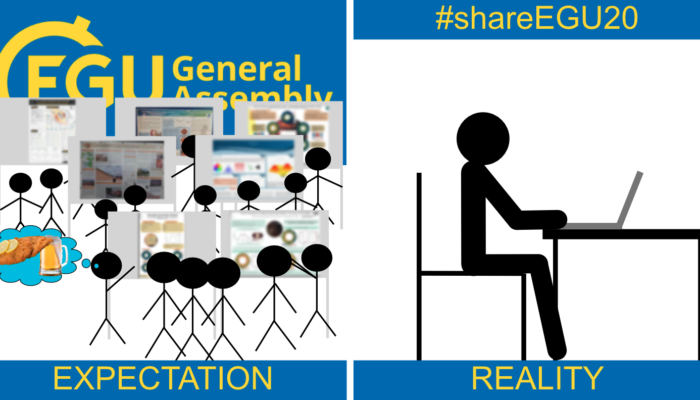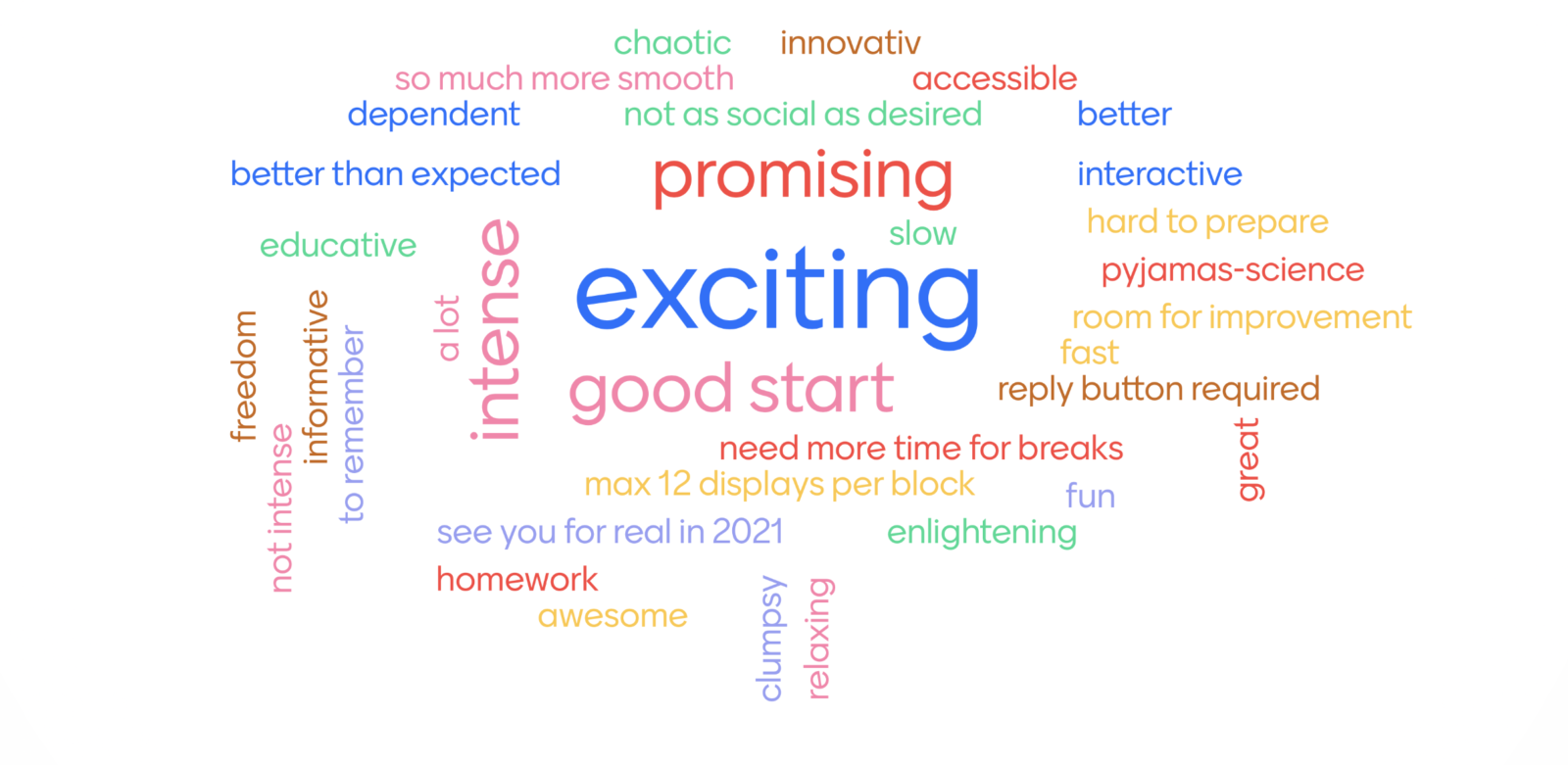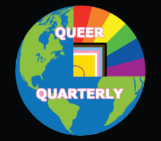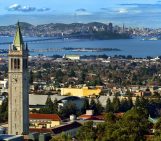
This week, the EGU General Assembly is taking place. As it was announced a long time ago: More than 16’000 scientists from all over the globe are meeting and sharing their science in sessions that cover all disciplines in Earth, planetary and space science.
But still, everything is a little bit different this year:
The EGU General Assembly 2020 takes place online
Due to the ongoing coronavirus pandemic, the physical General Assembly has been cancelled. Therefore, the organising committee of the General Assembly have put a tremendous effort into making the EGU General Assembly online. This has never happened before and therefore it is also an experiment. Will everything work smoothly? Will everybody be able to access the various scientific sessions, union symposia or short courses?
Had the GA taken place in Vienna, I would probably be in a cramped U-Bahn heading towards the Austria Center. I would check the app to see which sessions I want to attend first. I would get out in Kaisermühlen-VIC and (after having been alerted by some colleague that I am going towards the United Nations office and not the Austria Center) finally make my way to the first scientific session.
But this is 2020, so I have just finished my breakfast and take the rest of my coffee to my desk and open my laptop. There is no app for this year, but the EGU online planner works very well too.
Far-seeing as I am, I have already browsed through the many sessions some days before and have now a pdf at hand that guides me through the day. And this is good: It helps me to stay focused on the General Assembly and really attend the sessions and not work on my own project right now. Fortunately, I really can focus on the GA this week, as I am living alone and there is nobody in my apartment that could possibly distract me. I am wondering if and how other people are able to attend this virtual EGU. I know that some of them are not able to do so at all because, for example, they have to take care of their children.
The first session on my personal program is “How to make the most out of Sharing Geoscience online”. I go through the different slides. They explain nicely how to navigate through the live chat or how the comments work that people can make on your submission.
After this, I feel ready and prepared for my first, real session. I navigate towards the session “Cutting carbon in the geosciences: conference participation versus online streaming and fieldwork versus remote observations” (this is one of the Great Debates). I have already registered for it yesterday, so I can just click on a link and a Zoom window opens with the session that is about to begin.
The session is very interesting and discusses a lot of the challenges but also the opportunities that brings such a virtual GA. Of course, a virtual GA reduces drastically the carbon footprint and if it actually works well it can become a viable option for many people.
The live Zoom chat where people can ask questions or comment on the topic is very vivid:
EGU should give an example and show what is possible with virtual conferences
It will definitely be interesting to see how scientific conferences (or conferences in general) will change post-Corona. EGU is already showing that is possible to host such a big event completely online. Some people in the chat argue that is a pity that a pandemic was necessary to make this actually possible.
Someone in the chat objects:
A conference is not just about sitting in the rooms and watching presentations, it’s even more about talking to others, going to restaurants and bars after the program of the day.
It’s true. This week, I will not eat Wiener Schnitzel in a restaurant with colleagues and other scientists that I have just met at the poster stand and then go to a bar afterwards. Of course, you can also meet people and exchange contact details online, but it just isn’t the same.
Another important factor is the time zone: On the one hand, people from far away are able to join without having a jetlag. On the other hand, some people cannot present their work or attend the discussions because it happens in the middle of the night.
If you have missed this virtual great debate, EGU will put an edited version online soon. This is one of the benefits of a virtual conference: You are able to watch some of the talks later if you have missed it and for the various scientific sessions you can already download posters and slides in advance.
There is definitely a lot of things that need to be sorted out, but in the future, we will probably see more hybrid conferences (physical and virtual at the same time).
In the afternoon, I spend most of the time attending the different scientific text chat sessions. The good thing is, even if I have two (or more) sessions on my program, I can easily switch between them or even attend two at the same time (which I, personally, can’t). This would turn out quite difficult in the Austria Center. Especially for a person like me: I lose the orientation as soon as I walk out of a room (I mean rooms of conference centres – not every room, of course) and then spend half of the session looking for the other session.
On Tuesday evening, the GD ECS team organised a Networking and Feedback event on Zoom. And even though we couldn’t meet and chat in person, it was very nice to see some familiar faces and meet new ones. Part of it was also a short interactive survey where everybody could share what they think so far of virtual EGU:

How would you describe #shareEGU2020 so far?
If you could not attend the event, fear not: the presented slides will be put online. Also, a lot of participants have expressed that they would like a virtual networking event like this to happen on a more regular basis. So, chances are high that we don’t have to wait until EGU2021 for the next one!
For the rest of this week, last week’s blog post will be very helpful if you need more tips on upcoming sessions (or past ones that you might have missed), conference highlights or useful links.
And with this, I hope you enjoy the rest of the virtual EGU General Assembly and that you will be able to meet the people that you meet online during the conference very soon in the real, physical world.
See you next year at EGU2021!




